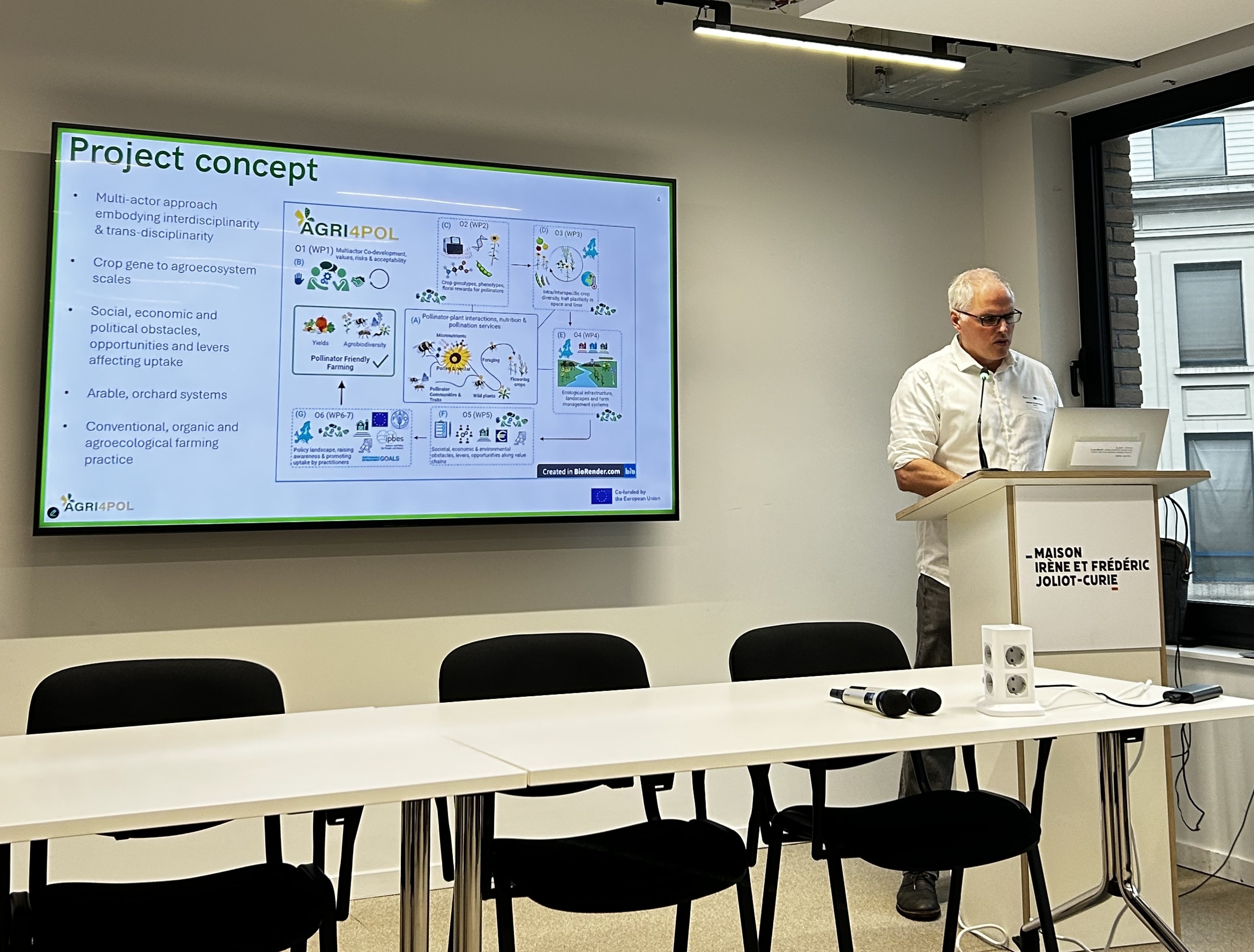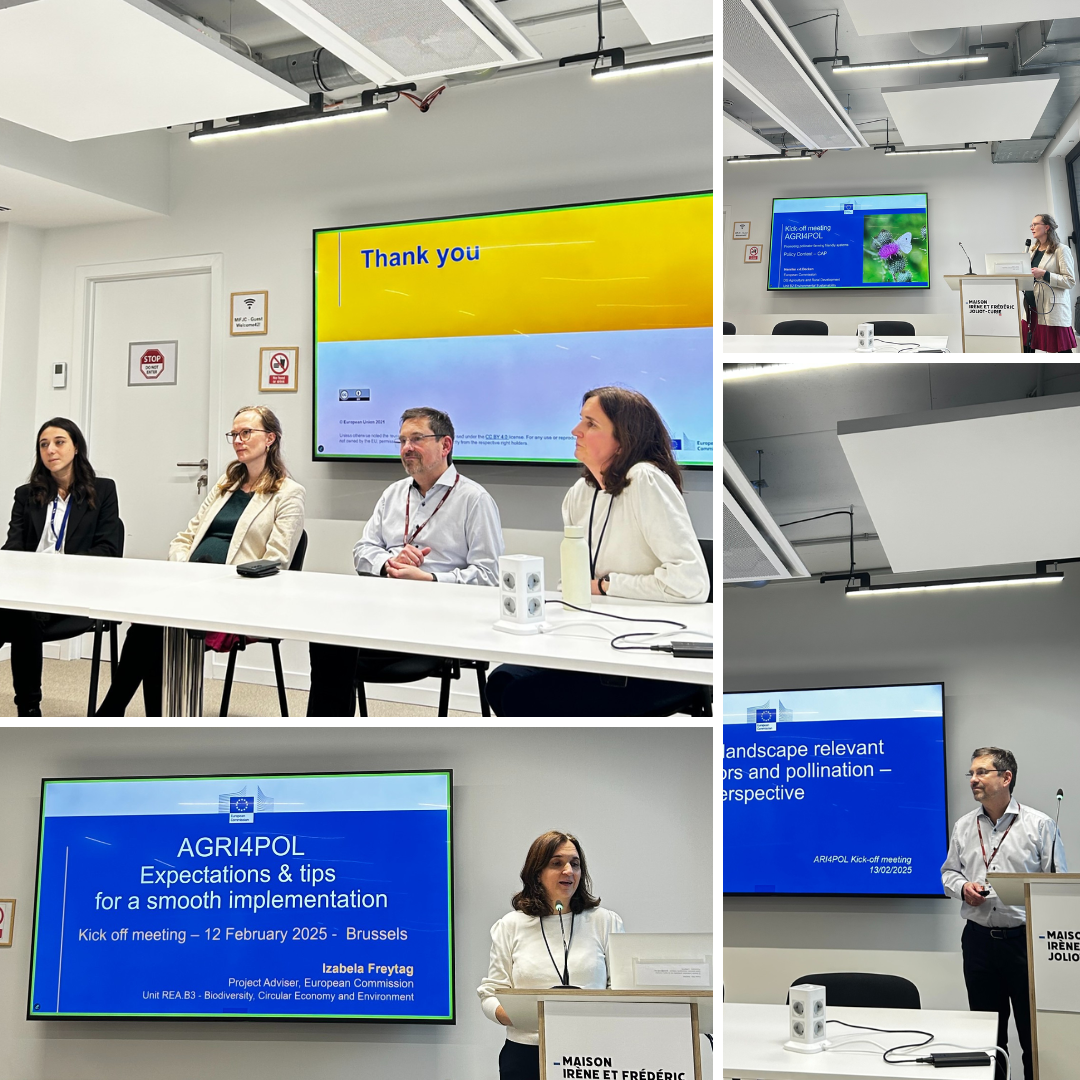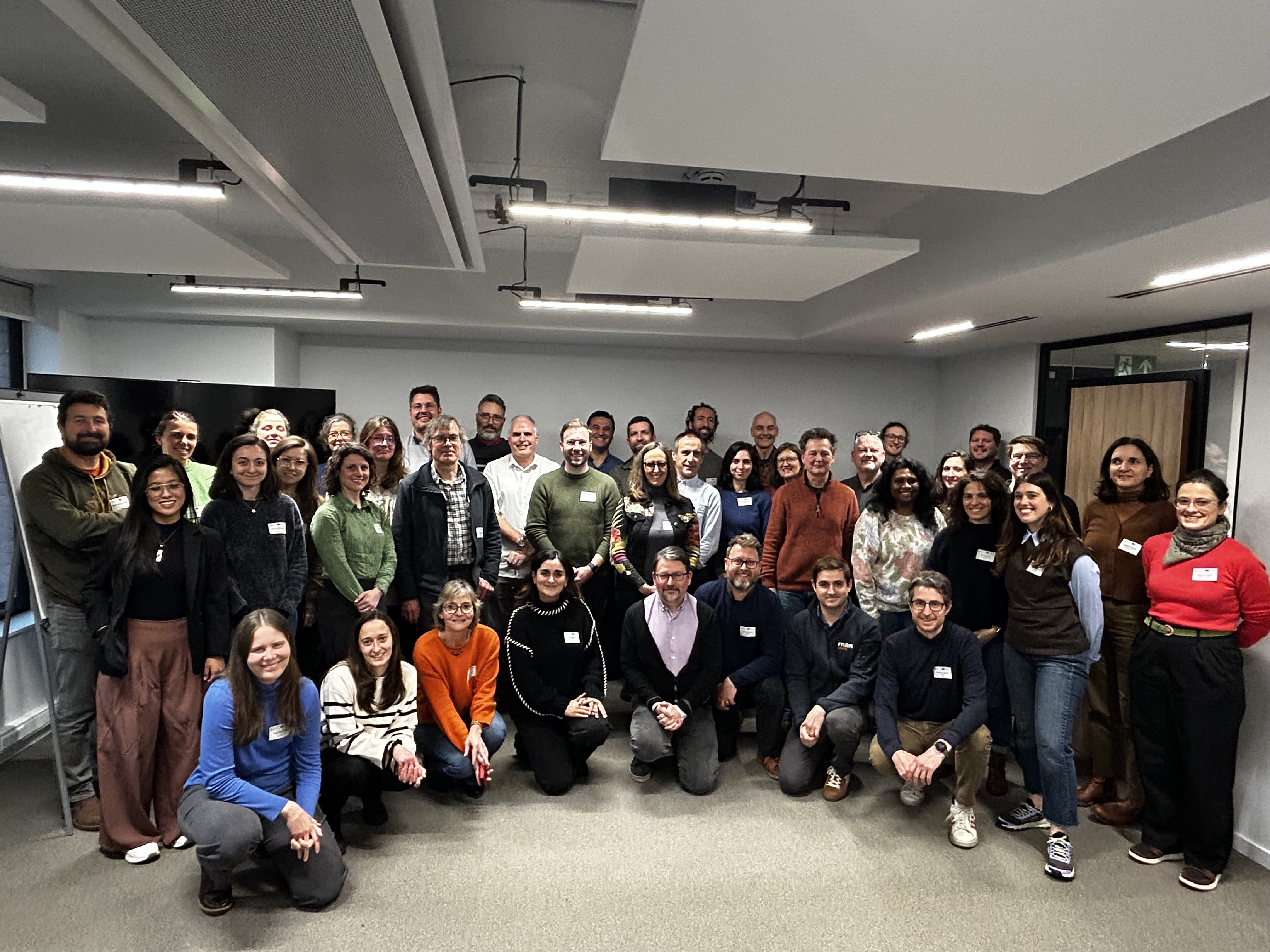From 11 to 13 February 2025, partners of the newly launched Horizon Europe project AGRI4POL gathered in Brussels, Belgium, for the project’s official kick-off meeting. Hosted by the coordinating institution INRAE, the three-day event marked the beginning of a collaborative effort that aims to assist the transition of agriculture from being a pressure on pollinators to becoming a positive force for managing and restoring pollinator biodiversity, crop pollination services, and co-benefits to ecosystems and people.
The meeting opened with an introduction from project coordinator Adam Vanbergen (INRAE), who outlined the project’s aims, structure, and expected outcomes. This set the stage for a series of presentations from work package leaders, each outlining their planned contributions to the project’s work.

Henning Nottebrock from the University of Freiburg introduced the multi-actor co-design framework, and end-user options for promoting pollinator-friendly farming. Nicolas Langlade (INRAE) ppresented the main objectives of research into the genetics of crop floral traits governing pollinator attraction, with a focus on sunflower and faba bean. David Kleijn (Wageningen University & Research) discussed management practices aimed at increasing pollinator benefits on farms, while Oliver Schweiger (Helmholtz Centre for Environmental Research) discussed multifunctional ecological infrastructure for pollinators and the co-benefits from field to landscape scales.
Further contributions addressed the broader socio-economic and policy context. Tom Breeze (University of Reading) and Sophie Thoyer (INRAE) introduced the work planned under the theme of social and economic opportunities and obstacles towards pollinator-friendly food systems. Claire Brown from UNEP-WCMC outlined the project’s approach to policy and practitioner engagement to support the uptake of pollinator-friendly farming practices. Pensoft Publishers presented the strategy for communication, dissemination, and exploitation of AGRI4POL results, as well as plans for building synergies with other projects.
The second day opened with a thematic session on the path to pollinator-smart cropping, focusing on crop genome selection, insect identification models, trait and rotation strategies, biological connections, and collaboration between research teams. A parallel session addressed the multi-actor approach, covering the implementation of existing plans and the identification of stakeholder entry points into the project. Another session explored how end-user perspectives on pollinator-friendly farming can be integrated into economic and political opportunities, or identified obstacles.

Members of the European Commission, Andreas Gumbert, Henrike von der Decken, Agata Gulisano, and AGRI4POL project officer Izabela Freytag, joined the meeting to share guidance on key contacts, expectations from the Commission, and the broader policy context. They presented examples of pollinator-friendly farming under the Common Agricultural Policy (CAP) and the national Common Support Plans (CSP), along with guidance on project monitoring, dissemination, communication, and cross-project synergies. The day concluded with a panel discussion involving the stakeholder advisory board and practitioner partners, who answered questions about areas of interest for end-users, communication strategies, and methods to support project goals.

The final day focused on planning, coordination, and collaboration, Luke Lauprete (INRAE) on project management and governance, and a session on publication strategy. Lastly, Pensoft Publishers outlined the Data Management Plan and highlighted plans to explore synergies with other initiatives. These included RestPoll, presented by Henning Nottebrock; HelEx, introduced by Nicolas Langlade; and the VALOR Project, presented by Tom Breeze. The meeting closed with a discussion led by Pensoft on communication, dissemination, and impact, with partners contributing ideas to enhance outreach.
The AGRI4POL kick-off meeting laid the groundwork for fruitful collaboration among project participants. With shared goals, the project now moves forward, stay informed about the updates via AGRI4POL social media channels and website.
